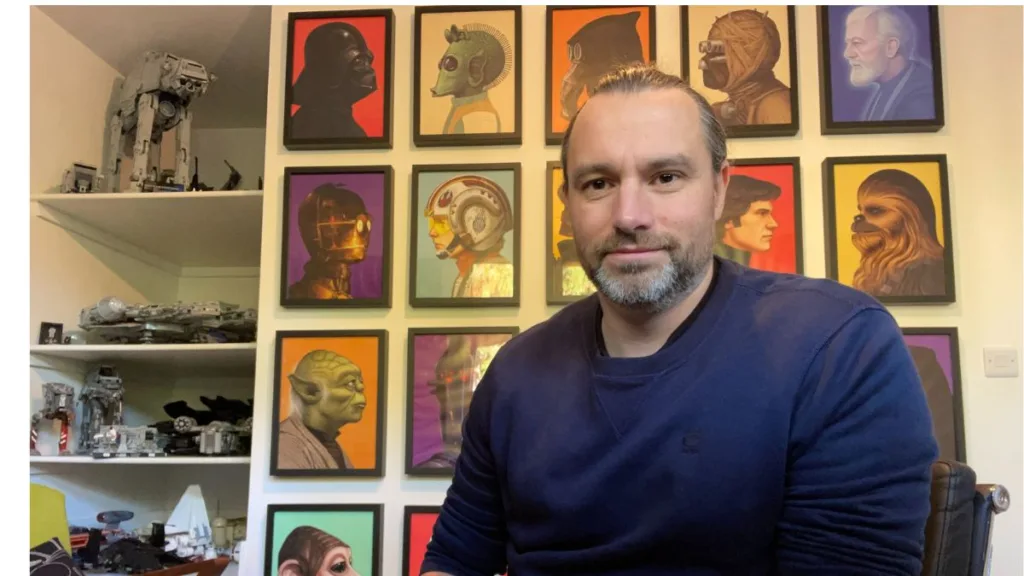Sean Betts is Chief Product & Technology Officer, Omnicom Media Group UK and NDA’s new regular columnist.
Sean is the driving force behind OMG UK’s Artificial Intelligence strategy and leads a group of 150 data scientists, analysts, marketing technologists, data architects, and developers, work in unison to support the four media agencies within OMG UK.
The generative ai paradigm shift
Generative AI is rapidly coming to the forefront as a revolutionary tool with enormous potential to reshape both society and the economy. Much of the conversation around generative AI typically centres around the fear of job loss. Everything from simple repetitive tasks to intricate analytical jobs seem at risk, a concern that’s deeply felt within the marketing sector.
However, within this transformative shift, there’s another perspective—that generative AI is here to enhance our efforts, not simply replace them. Instead of imagining a future where AI takes over human roles, we should see it as an important tool that can augment our capabilities and redefine the way we work. This viewpoint is particularly relevant to digital marketing, an industry likely to see major disruption.
A recent McKinsey report titled “The Economic Potential of Generative AI: The Next Productivity Frontier” suggests that marketing is one of the four sectors expected to experience the most upheaval from generative AI. There are several reasons why marketing is particularly vulnerable to this disruption. Its reliance on data analysis and creative content generation—two areas where generative AI truly shines—puts it directly in the line of fire.
Moreover, the ever-evolving nature of marketing strategies, consistently adapting to shifting consumer behaviours and market trends, requires agile, data-led solutions that generative AI can offer.
AI as an enhancer of human capabilities
We need to shake up the story about how generative AI is going to impact jobs. Instead of seeing it as a job killer, it should be seen as an accelerator of human potential. As Erik Brynjolfsson and Fei-Fei Li point out in their article, “A Human-Centred Approach to the AI Revolution,” worrying about AI as a job-ender tends to overshadow its power as a job creator and transformer.
For marketing teams to ride this wave successfully, they need to look beyond quick wins. Generative AI has so much to offer—it can improve the way we work, spark our creativity, make us more efficient, and help us make faster decisions, totally reshaping how we do things in our industry.
Welcoming the power of generative AI also means we need to keep on learning. By giving employees a solid understanding of AI, and especially generative AI, we make sure they aren’t left out as this change sweeps our industry. Upskilling isn’t just nice to have, it’s a must-have, enabling our teams to use generative AI as a tool for advancement, rather than worrying about it being a disruptor. Our Generative AI educational webinar series, and Steering committee are two good examples of how we are embracing it at Omnicom.
Generative AI’s augmentation potential
As we figure out how generative AI fits into digital marketing, the potential for shaking up the entire industry is huge. Think about all those everyday, time-eating tasks like entering data, doing basic analysis, or scheduling content. By getting generative AI to do these jobs, we can put our creative brains to work on strategic decision-making, problem-solving, and developing innovative campaigns.
Plus, we can use generative AI to build easily accessible knowledge bases that give us fast, thorough insights to help us with these tasks. A good example of this is the recent launch of OmniAssist, our virtual assistant developed using OpenAI’s GPT models helps our colleagues with tasks across the advertising process such as compiling audience insights and building media plans.
Longer term, generative AI also has the potential to totally change the more complex parts of marketing. For example, it can be trained on top-notch marketing methods, giving us a level of marketing strategy and implementation, we’ve never had before. Generative AI can assist us in creating custom-made email campaigns, generating social media posts, and even writing blog posts—all on a big scale and with a level of personal touch that really clicks with customers.
But, as we go through this transformation, it’s important to remember that human creativity is still the key differentiator. While generative AI can boost our abilities, it’s our human insights, empathy, and creativity that truly make our marketing strategies shine. Generative AI isn’t there to replace us; it’s our companion as we explore the future of digital marketing.
The way forward
The generative AI revolution in digital marketing is a team effort that needs everyone—business leaders, employees, regulators, and others—to be actively involved. Leaders should aim to create a culture that both welcomes generative AI’s potential and is cognisant of its challenges—data biases, hidden labour, environmental impacts, and issues around confidentiality, copyright, and liability.
To handle these complexities, we need to make sure generative AI use is aligned with human values. This means the industry needs to get together and talk about standards and best practices. A BCG report called “AI at Work: What People Are Saying” highlights a skills gap, with 86% of employees seeing a need for more training, but only 14% actually getting it. It’s crucial that we tackle this gap with training programs that focus on creativity, critical thinking, and getting hands-on experience with AI. As we train up a new generation of talent who are “AI ready,” we’re also making sure they can work smoothly and flexibly with generative AI.
Of course, setting these standards won’t be a walk in the park. Keeping up with the fast pace of generative AI progress, while still considering ethical, legal, and social issues, will need constant attention. Despite these challenges, it’s essential not to forget that human creativity is still the driving force behind effective marketing campaigns.
The future will likely see the greatest success from a combination of AI-generated ideas and human insights, highlighting the value of human-AI teamwork. This mix of machine efficiency and human creativity is the way forward in our AI-enhanced digital marketing world.








